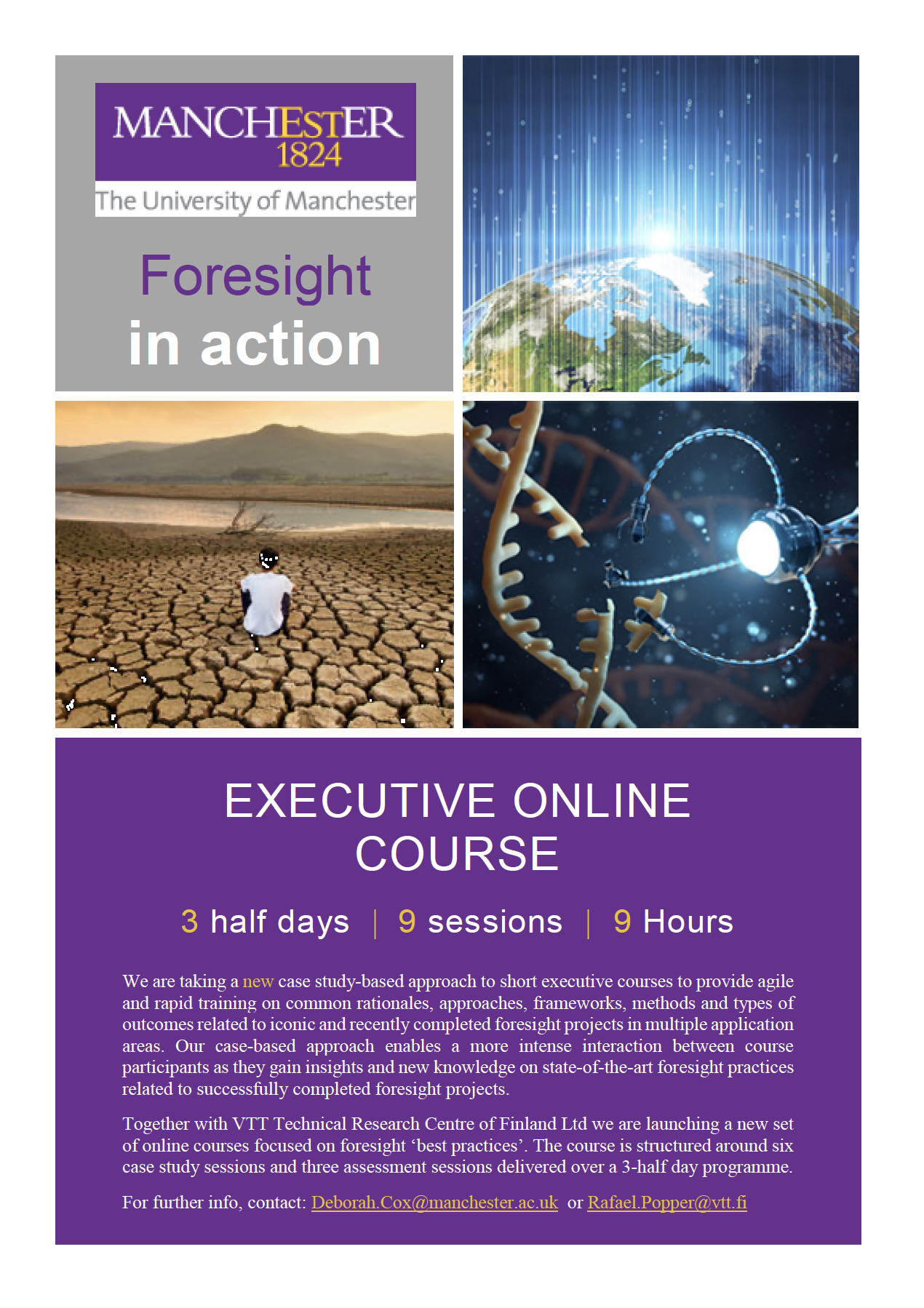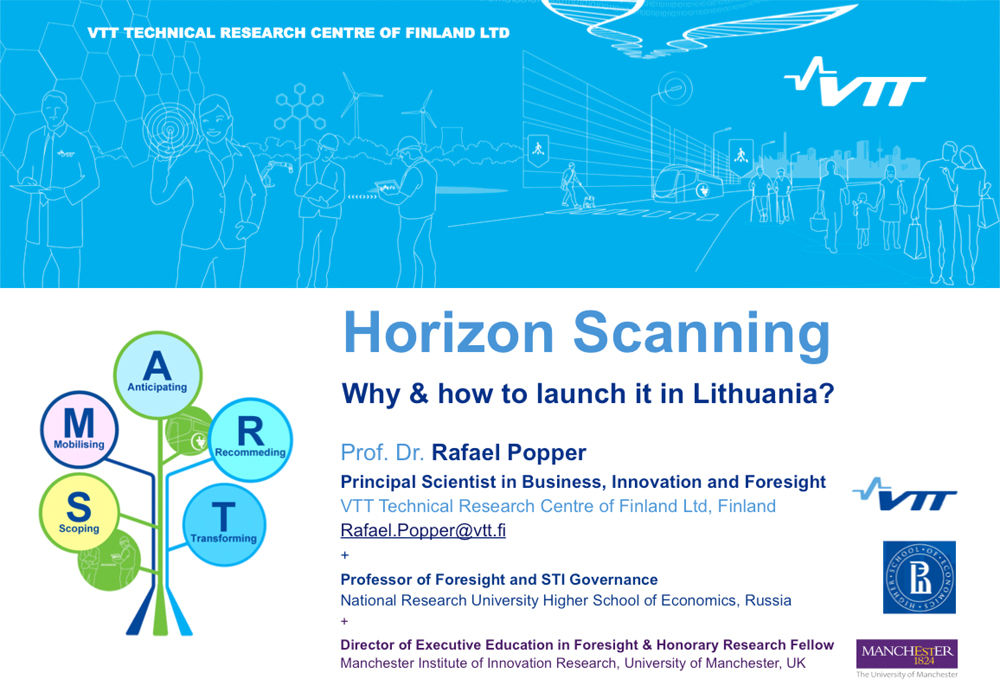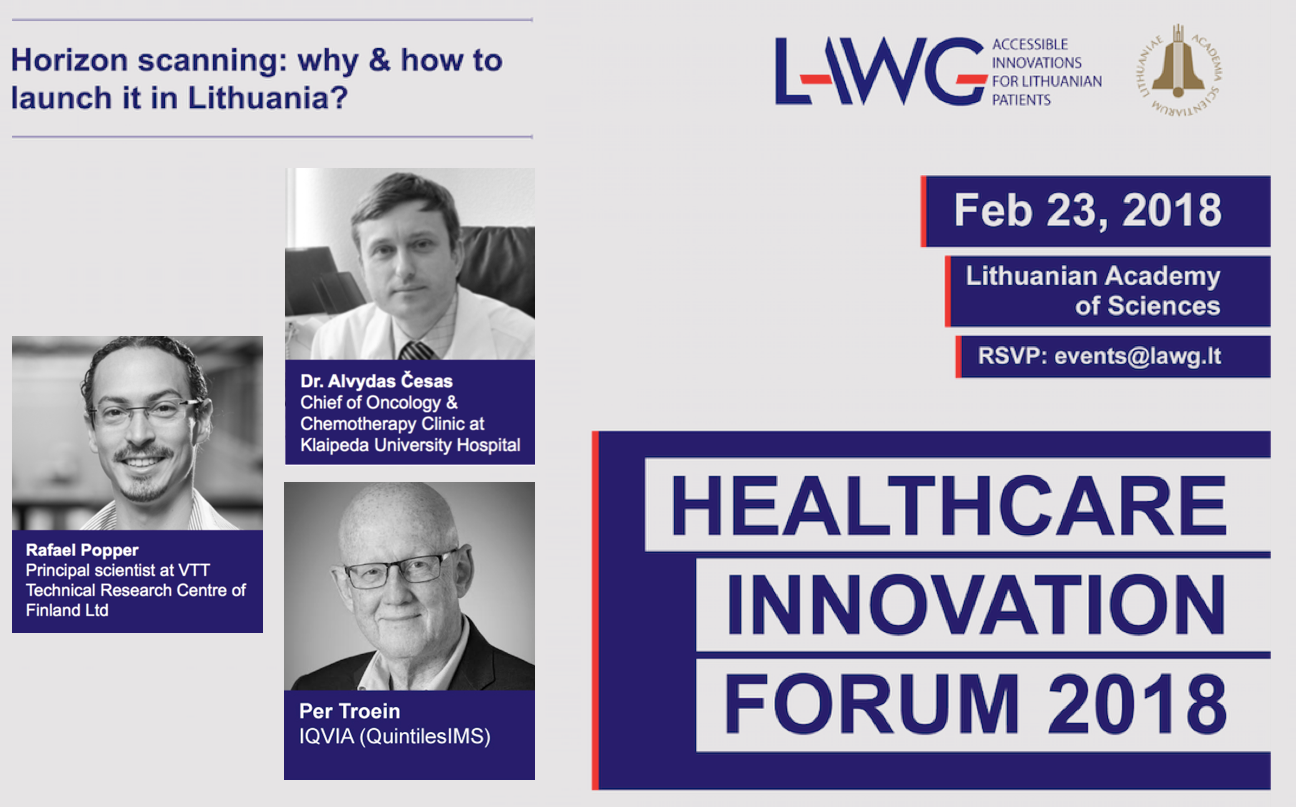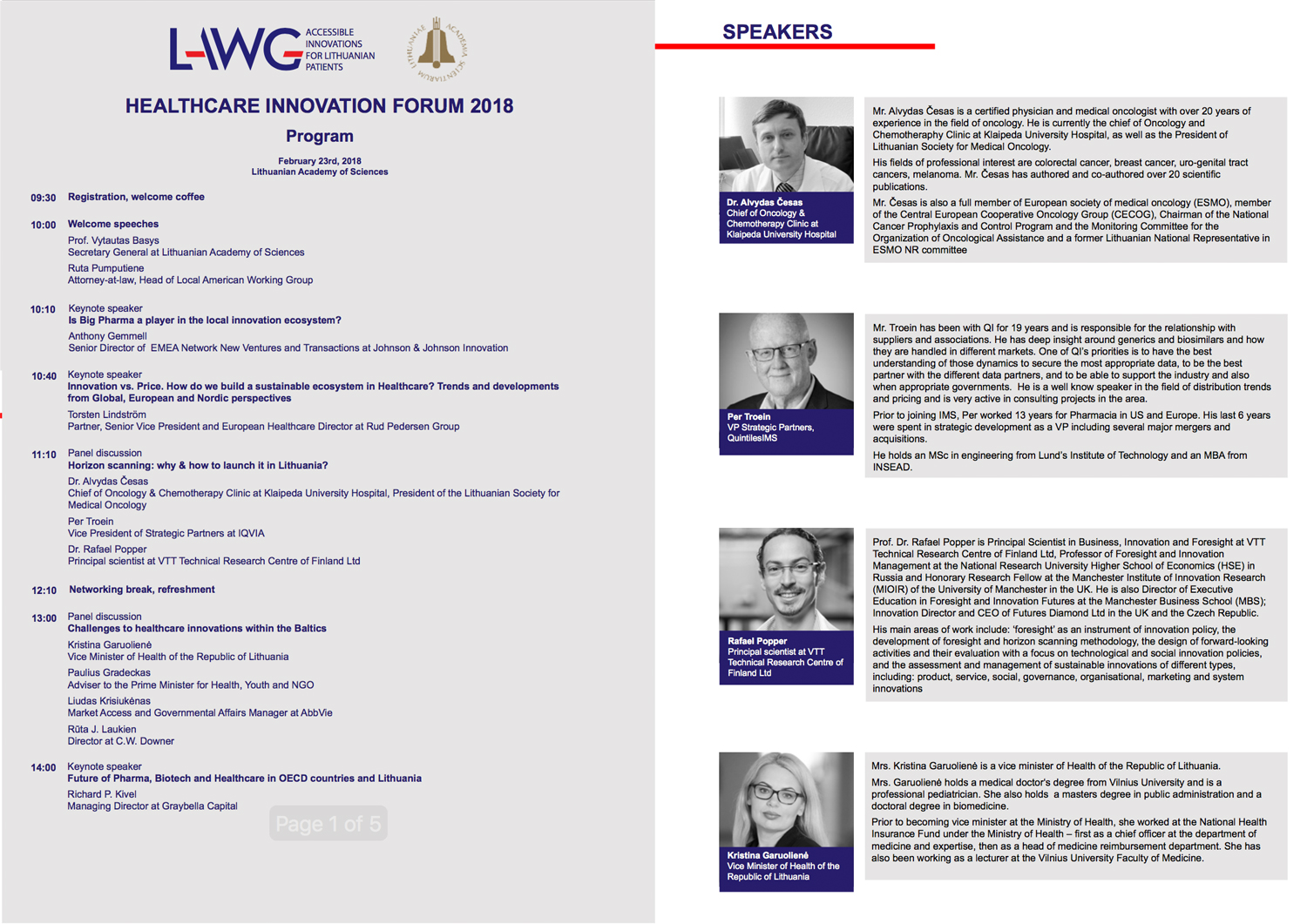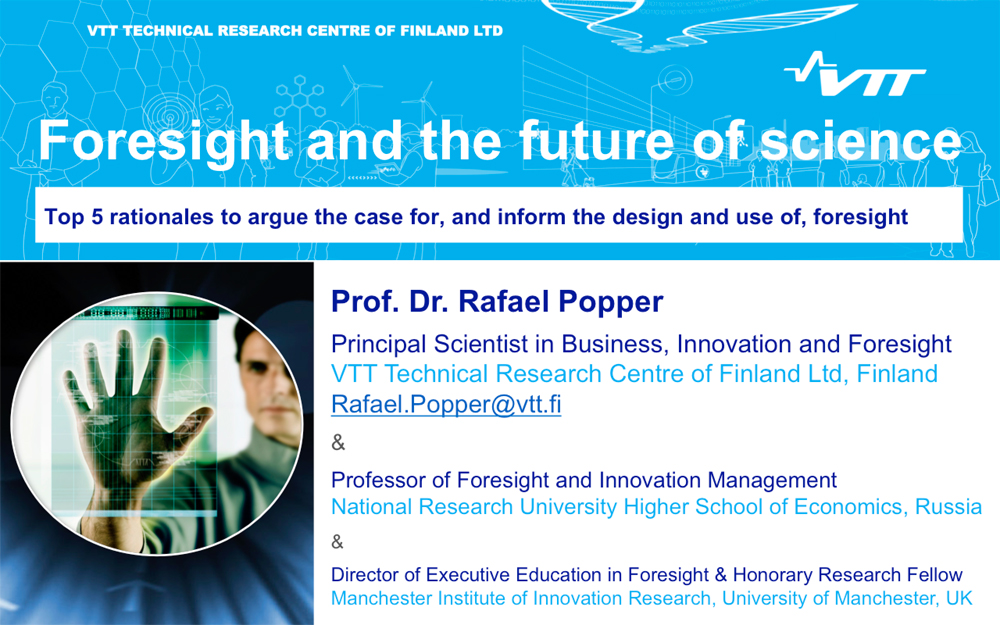Archive
Mapping my Top 10 Events and Knowledge Co-Creation and Sharing interactions in the period 1999-2023
Attending and organising knowledge co-creation & sharing events (e.g. workshops, focus groups, citizen/expert panels, conferences, seminars, symposia, roundtables, matchmaking & coaching meetings) requires time and energy.
In the last 20+ years I’ve been involved in 200+ such events in 3️⃣9️⃣ countries where I had the pleasure to interact with 8000+ people from 7️⃣6️⃣ countries. After such stocktaking I thought of sharing my Top 10 choices in terms of excellence (organisation- & content-wise) and impact (i.e. concrete spillovers & networking power). Given the large variety of events, I focused on those that mobilised over 100 people, including international experts.
Here are my Top 5 takeaways for the future:
- Be selective and know why to attend an event.
- Be assertive when choosing people to interact with.
- Be ready to engage in follow up discussions on opportunities.
- Be strategic by preparing yourself with pre-arranged side meetings.
- Be patient as some positive spillovers may emerge several years later.
Here are my Top 10 events:
✅ 2002 – Wallonia, Belgium: Symposium on Territorial Foresight as a Tool of Governance. Organised for the Présidence du Government Wallon by the Institut Destrée. This event was extremely well organised (both structure- and content-wise) with several roundtable discussions about the importance of regional foresight by carefully selected experts openly sharing best practices based on ongoing and recently completed foresight projects. I had the pleasure to contribute to the session on experts’ testimonies and regional foresight practices facilitated by Jordi Serra del Pino.
✅ 2004 – Seville, Spain: EU-US Scientific Seminar on New Technology Foresight, Forecasting & Assessment Methods. Organised and hosted by the European Commission Directorate-General Joint Research Centre IPTS, with the National Science Foundation (NSF) and the International Association for Impact Assessment (IAIA). This event offered a wide range of inspiring insights and approaches to Future-oriented technology Analyses (TFA) from EU vs US, as well as public vs private perspectives, including lively debates on future trajectories. Proceedings of the seminar carefully edited by Fabiana Scapolo can only be described as “old but gold!”, thus worth reviewing if you are entering into the foresight or futures research field.
✅ 2008 – Cali, Colombia: International Forum on Innovation, Science and Technology Foresight. Organised for Colciencias by Javier Medina from the Universidad del Valle (CO), in close collaboration with The University of Manchester Manchester. The event brought an international expert panel to share lessons on how to better align foresight with the STI implementation environment by: (1) promoting key values in society and the STI system; (2) improving the generation of knowledge and R&l; (3) interacting with national and regional STI systems; (4) adapting and reacting to changes in the STI system; (5) promoting STI absorption and competitiveness; (6) consolidating infrastructures and information systems; (7) increasing and strengthening STI capacities; (8) fostering research on strategic sectors; and (9) fostering internationalisation of STI.
✅ 2010 – Vienna, Austria: EFP Conference on Foresight and Forward-Looking Activities – Exploring New European Perspectives. Organised by the AIT Austrian Institute of Technology GmbH for the European Commission funded European Foresight Platform (EFP) project. The event gathered over 100 practitioners engaged in ‘World Cafe’ style discussions sessions around several topics concerning the future of foresight, addressing questions such as: (1) How should foresight evolve to better respond to policy making needs?; (2) How could quantitative and qualitative methods be combined to support forward looking decision making?; (3) How to ensure continuity and future value of the EFP to support policy making?; (4) How to use surprising and bewildering events to support foresight, horizon scanning and forward looking policy making?; and (5) How can we bring foresight into media and media into foresight? All very much relevant questions that still deserve plenty of attention today.
✅ 2011 – Brussels, Belgium: iKnow Conference in Taming the Wild and Listening to the Weak: Towards a Strategic Issue Management System for Science, Technology and Innovation (STI). Organised by the Manchester Institute Of Innovation Research (MIOIR) of the University of Manchester for the European Commission funded iKnow project. This event presented new methods, frameworks, tools and practical guides to better identify, assess and manage wild cards and related weak signals. The depth and breadth of the discussions, as well as the target audience, including supranational organisations and agencies (e.g. EFSA, ENISA, OSHA, OECD, and UN bodies); as well as national and subnational research, policy and industry players made the event particularly relevant for policy shapers, risk analysis, strategic planners, and the foresight and horizon scanning communities. The event was structured around 5 interconnected building blocks: (1) Informing and shaping futures research and innovation; (2) Knowledge sharing; (3) Networking; (4) Optimising research and collaboration agendas; and (5) Working with Grand Challenges and interdisciplinary agendas.
✅ 2013 – London, UK: CfWI Annual Conference on Working together to deliver the workforce of the future. Organised for the Department of Health and Social Care by the Centre for Workforce and Intelligence (#CfWI). The event mobilised 250+ stakeholders representing most key players in the UK healthcare, social care and public health systems, including: National Health Service (NHS), Health Education England (HEE), Care Quality Commission (CQQ), Academy of Medical Royal Colleges (AoMRC), Social Care Institute for Excellence (SCIE), Skills for Care, Skills for Health, Learn to Care, Allied Health Enterprise Development Centre and dozens of workforce planners and health practitioners working together to discover new horizons and explore workforce challenges facing health and social care. During the event the CfWI Horizon Scanning Hub and sdiPad App were launched in order to promote bottom-up mapping and discussions about workforce and future planning topics, articles and ideas considering plausible scenarios and assessing their workforce implications.
✅ 2014 – Brussels, Belgium: #VERA Final Conference: Forward Visions on the European Research Area. Organised for the Fraunhofer Institute for Systems and Innovation Research ISI (Fraunhofer ISI) for the EC Directorate-General for Research and Innovation. The event offered insights relevant for all science, technology and innovation (STI) policy makers, and provided an excellent platform supporting structured debates about the future of the European Research Area (ERA) and the political and societal priorities underpinning its evolution. The event helped to better position 9 ERA dimensions that have not been captured in the ERA discourse so far, but which deserve more policy attention and integration into the evolving dimensions of the European R&I landscape, namely: (1) Boosting research and innovation synergies; (2) Strengthening the global influence of ERA; (3) Promoting smart R&I evaluation; (4) Improving the governance of the EU R&I system; (5) Fostering relevant science-society engagement; (6) Developing attractive and impactful research careers; (7) Supporting knowledge co-creation and sharing; (8) Achieving gender equality and social inclusion in R&I; and (9) Reinforcing ERA regional and local outreach.
✅ 2018 – Santiago, Chile: ECLAC International Seminar on Planning for Development with a Vision of the Future. Organised by the Economic and Social Planning Institute of Latin America and the Caribbean (ILPES) for ECLAC. The event mobilised 180 delegates from 15 countries, including researchers, scholars, experts, civil servants and public administration authorities to present and discuss research studies, cases and experiences related to the following thematic areas: (1) Foresight for development; (2) Territorial development; (3) Planning: Management of planning systems for development, experiences of synergies between planning and budgeting, participatory planning and/or with a focus on gender issues; and (4) Building public leadership competences for development.
✅ 2018 – Turin, Italy: ETF Conference on Skills for the Future: Managing transition. Organised by the European Training Foundation (ETF) and attended by over 350 professionals from 50 countries. The event helped to promote a more structured policy debate on future prospects of the impacts of eight global trends in ETF Regions (Western Balkans, Eastern Partnership, Mediterranean and Central Asia), namely: (1) Globalisation; (2) Demographics changes and ageing; (3) Migration, mobility and brain-drain; (4) Digitalisation, artificial intelligence and automation; (5) Climate change and diminishing natural resources; (6) FDIs and offshoring threatened by automation; (7) Youth and women unemployment; and (8) Growing inequality and political instability.
✅ 2022 – Brussels, Belgium: INESC High Level Conference on Science-based Innovation for the Green and Digital Transitions organised by INESC Brussels HUB to promote multi-stakeholder discussions on the role of the wide diversity of research and technology infrastructures in supporting fully functional, competitive, state-of-the-art and disruptive R&I ecosystems; as well as the funding of the full R&I cycle and its impact on cohesion and competitiveness. The event mobilised over 100 high-level experts to share insights and forward-looking views about: (1) Science-based innovation; (2) Research and Innovation Support Infrastructures: An Ecosystem Approach; (3) Skills and capacity building for technology development and innovation; and (4) the Funding science-based innovation: Bridging knowledge production and market uptake. In addition to key representatives from all 5 INESC institutes, the conference included keynote speakers from the EC DG RTD; United Nations Regional Information Centre; UAS4Europe; the French Ministry of Higher Education, Research and Innovation; the Czech Ministry of Education, Youth and Sport; EURASHE; the Portuguese Ministry of Science, Technology and Higher Education, Portugal; the Permanent Representation of Portugal to the EU, among others.

Executive Course on SMART Foresight
Course overview: 3 half days | 9 sessions | 12 Hours
- Next date: 6-8 Jul 2021; 12.00pm-4.00pm GMT.
- Delivered by: Dr Rafael Popper and Dr Guillermo Velasco.
- Teaching: Lectures, practical exercises, case studies.
- Location: Zoom (This is a virtual course).
Click here to view the course brochure
We are taking a new approach to short executive courses to provide agile and rapid training on how to design and manage the five phases of a SMART foresight and futures research process: Scoping, Mobilising, Anticipating, Recommending and Transforming.
Our SMART approach will be beneficial for anyone who tave taken the ‘Foresight in Action’ and ‘Foresight Methods’ courses, as well as newcomers. The course is primarily focused on process design and management with emphasis on how to plan and execute a fully-fledged foresight process.
Together with VTT Technical Research Centre of Finland Ltd we have introduced a new set of online courses aimed at boosting foresight and futures know-how. The course is structured around 5 core lectures (approx. 90-120 minutes each) and 5 interactive sessions (approx. 60-90 minutes each) delivered in a 5-half day programme (including optional individual and group practical exercises).
Course certificate from The University of Manchester will be provided.
You may register for one half day, two half days or the full course. Costs are shown in the brochure. To book your place, please contact the Manchester Institute of Innovation Research (MIOIR) manager Deborah Cox.
Course programme
Half-day 1
Tuesday, 06 July 2021
- Session 1: How to design and manage the SCOPING phase of a foresight process?
Defining key objectives, project team, budget, time horizon and methodology.
- Session 2: How to design and manage the MOBILISING phase of a foresight process?
Engaging sponsors, key stakeholders and domain/methodology experts.
- Practical: Interactive group session for Q&A and practical discussions/exercises
Half-day 2
Wednesday, 07 July 2021
- Session 3: How to design and manage the ANTICIPATING phase of a foresight process?
Anticipating possible futures, visions and forward-looking issues, roadmaps and models.
- Session 4: How to design and manage the RECOMMENDING phase of a foresight process?
Providing strategic, tactical and operational recommendations with robust advice framing.
- Practical: Interactive group session for Q&A and practical discussions/exercises
Half-day 3
Thursday, 08 July 2021
- Session 5: How to design and manage the TRANSFORMING phase of a foresight process
Promoting multi-systemic transformations through sustainable impact and excellence.
- Practical: Interactive group session for Q&A and practical discussions/exercises
- Challenge: Group presentations with real-time evaluation à la Dragons’ Den
Foresight Methods Course (Winter 2021)
On 23-25 February 2021 the Manchester Institute of Innovation Research (MIOIR) in partnership with VTT Technical Research Centre of Finland Ltd hosted an executive education course on Foresight Methods. Some 20+ participants from 13 countries attended the sessions, which included 6 lectures and 3 practical exercises.
VTT Senior Scientist Dr. Tim Schatz wrote an opinion article in which he reflects about his experience, as well as the structure and discussions dynamics. Tim’s article has been published in both, the MIOIR Blog on science, and innovation policy management; and the Universal Foresight Blog.

EU-SPRI 2021 Conference Track on Transforming ‘wicked-problems’ into ‘moonshot-opportunities’
10th Annual EU-SPRI Conference: “Science and innovation – an uneasy relationship? Rethinking the roles and relations of STI policies”
A couple of decades ago, the concepts of science and innovation became steady partners, especially in policy. Countries, regions and the EU developed policies and support instruments for science and innovation – indicating that there is a close relationship between these two activities and therefore also policy areas. Although this is certainly sometimes the case, the Eu-SPRI 2021 conference invites participants to a more critical and reflexive discussion of this link. What are the problems of seeing science and innovation as two sides of the same coin? Is the merger of the two policy areas in some cases a barrier to solving societal challenges as much as it represents a solution? When is it helpful to look at science and innovation, and when do we need to keep them apart? Such questions are not just important for society, but also for developing the community interested in science and innovation policy studies.
The Eu-SPRI 2021 conference aims to discuss the boundries and linkages between these two sets of practices and how it can be usefully conceptualized to inform future and address current and future societal challanges. This will also allow the interdisciplinary community that studies science and innovation policies to join the conference to reflect upon their own history, trajectory and frameworks.
Although, many different topics are useful for understanding and elaborating the science-innovation boundry, the conference will primarily address three important themes: (1) Addressing the role of research and innovation in times of crises; (2) Impact, excellence and Beyond: Reframing the science-society relationship; and (3) Technology push or societal change – the widening scope of STI policies in sustainability transitions.
Visit https://www.euspri2021.no/cfp/
In the theme focused on Addressing the role of research and innovation in times of crises we are organising a track on Transforming wicked-problems into moonshot-opportunities.
Transforming ‘wicked-problems’ into ‘moonshot-opportunities’: The role of research and innovation in the responsible and sustainable assessment and management of ‘catastrophes’, ‘wild cards’ and related ‘weak signals’
- Convenors: Rafael Popper, Raija Kovisto, Jari Kaivo-oja, Toni Ahlquist and Joe Ravetz.
- Session type: Full paper session and speed talk sessions.
- Click here to visit Track webpage at the EU-SPRI2021 website
The Covid pandemic has brought the importance of foresight and wild card analysis to the forefront of the research and innovation (R&I) policy debate. A decade ago the European Commission devoted considerable resources to the so-called Blue Sky research initiatives, to better position wild cards and weak signals analysis in the foresight realm, as well as in science, technology and innovation (STI) policy circles, with the help of collaborative research efforts such as the iKnow project. The world faces complex and interconnected Grand Challenges that require complex and interconnected responses, calling for creative action based on strategic thinking. Over 20 years of research and policy on sustainable development and innovation, we have seen that the need is as clear as ever – we need a step change in the quality of foresight-driven shared intelligence at every level – communities, organisations, networks, economies and societies, from local to global. How to go about this? This track calls for theoretical, methodological and practical contributions supporting the systematic and timely interconnection of social and technical knowledge, developing forward-looking tools and methods for addressing ‘wicked problems’ (including grand challenges, wild cards and related weak signals) by providing relevant frameworks and knowledge on potential ‘wicked solutions’ or grand responses.
The proposed session will focus on frameworks for theory and practice interconnecting the four ecosystems associated to what could be referred to as the ever growing ‘Knowledge Diamond’ (see also Unger and Polt, 2017), consisting of: Research ecosystems, Education ecosystems, Innovation ecosystems and Regulation ecosystems.
It has become recognised that R&I programmes should be addressing the ‘wicked problems’ or societal challenges that confront Europe and the world. A huge amount of information has been generated concerning such challenges, creating a knowledge management problem even for those working within one problem area. The problem is even greater when we take into account the need for understanding of the possible interactions or synergies between societal challenges. The volume of information is continuously increasing with studies at various levels of granularity, and considerable controversy associated with many of the topics. The notion of societal challenges and related crises is not just indicating that these are “wicked problems” that confront our societies. They are understood as presenting challenges that can be addressed through RTDI and the creation of conducive environments for adoption of innovations. Challenges may be rooted in economic, social or scientific goals but share a need to demonstrate their relevance, feasibility, and a clear research dimension.
The session will seek new methods for systematic assessment of crises, catastrophes, wild cards and related weak signals, as well as their management with the help of R&I (policy). Contributions are expected to extend this approach to a more general process of foresight, horizon scanning and critical issues analysis with concrete applications to grand challenges and the ultimate goal of devising ‘wicked’ or ‘grand’ solutions and responses. The rationale for this is a simple one: without a wide-ranging assessment of factors that may impinge upon the trajectories of grand challenges and the outcomes of grand solutions – especially factors that are generally overlooked, or only manifest currently as “weak signals” – it is very likely that analyses and prescriptions (also in the form of R&I policy) will be too linear and insufficiently robust. As with other aspects related to crises, relevant knowledge is widely dispersed, and appropriate action crucially requires inputs from many stakeholders. Resilient societies can confront change more effectively when informed stakeholders are better able to understand the nature of these changes, and the likely responses of their partners. This effectively means that foresight-driven strategic intelligence (including wild cards and weak signals analyses) should be widely distributed, and regularly co-produced and applied in multi-stakeholder settings. The session can be linked to ongoing political discussions of economic and social stress tests of the Member States of the European Union.
In summary the track themes would include:
- State-of-the-art frameworks for the mapping of catastrophes, wild cards & weak signals
- State-of-the-art approaches for the assessment of catastrophes, wild cards & weak signals
- State-of-the-art approaches for the management of catastrophes, wild cards & weak signals
This track aims to include a mix of full paper sessions, speed talks for work in an early stage as well as roundtable sessions. We are open to collaborate with other scholars in the field to organise the track.
References
Ariffin, A., Maavak, M. and Miles, I. (2018). ‘Managing Uncertainties via an Embedded Foresight Regimen in the National Policy Planning Architecture’. International Journal of Engineering Technologies and Management Research, 5(6), pp. 1-14. DOI: https://doi.org/10.29121/ijetmr.v5.i6.2018.241.
Kaivo-oja, J. (2012) Weak Signals Analysis, Knowledge Management Theory and Systemic Socio-cultural Transitions. Futures. The Journal of Policy, Planning and Futures Studies. Vol. 44, Issue 3, pp. 206–217.
Kaivo-oja, J. & Lauraeus, T. (2018) The VUCA Approach as a Solution Concept to Corporate Foresight Challenges and Global Technological Disruption. Foresight. The Journal of Future Studies, Strategic Thinking and Policy. Vol. 20 Issue: 1, pp. 27-49.
Koivisto, R., Kulmala, I., and Gotcheva, N. (2016). Weak signals and damage scenarios – systematics to identify weak signals and their sources related to mass transport attacks. Technological Forecasting & Social Change Vol. 104(2016) March 2016, pp. 180 – 190. doi:10.1016/j.techfore.2015.12.010
Mendonca, Sandro, Cunha, Miquel P., Kaivo-oja, Jari and Ruff, Frank (2004) Wild Cards, Weak Signals and Organisational Improvisation. Futures. The Journal of Forecasting, Planning and Policy, Vol. 36, Issue 2, pp. 201-218.
Pajula, T. and Popper, R. (2020) ‘Towards a Hybrid Framework for Sustainable Innovation’ in Martini, M., Holsgens, R., Popper, R. (2020) (Eds), Governance and Management of Sustainable Innovation: Learning from Experience to Shape the Future, Springer.
Popper, R., Popper, M., and Velasco, G. (2020) ‘Sustainable Innovation Assessment and Management Framework: Principles, Methodology and Practice’ in Martini, M., Holsgens, R., Popper, R. (2020) (Eds), Governance and Management of Sustainable Innovation: Learning from experience to Shape the Future, Springer.
Popper, R. and Butler, J. (Eds) (2011) iKnow Policy Alerts, Report of the Blue Sky iKnow Project for the European Commission Directorate-General for Research and Innovation Socio-economic Sciences and Humanities, Manchester: The University of Manchester. ISBN 978-0-946007-22-6.
Ravetz, J, (2020): Pandemic-3.0 – from crisis to transformation – Exploring the COVID-19 Challenge. Journal of Future Studies. https://jfsdigital.org/2020/08/18/pandemic-3-0-from-crisis/
Ravetz, J, Miles I, Popper R (2011) iKnow ERA Toolkit: European Research Area Toolkit – Applications of Wild Cards and Weak Signals to the Grand Challenges & Thematic Priorities of the ERA: Manchester Institute of Innovation Research, University of Manchester. ISBN 978-0-946007-26-4. Availble online at http://community.iknowfutures.org/news/toolkit.php
Unger, M. and Polt, W. (2017), ‘The knowledge triangle between research, education and innovation – a conceptual discussion,’ Foresight and STI Governance, Vol. 11, No. 2, pp. 10-26. https://doi.org/10.17323/2500-2597.2017.2.10.26
Top 20 highlights from 2020
Happy New Year to all!
2020 has been surprisingly productive in multiple fronts. The following one minute video shows some 20 highlights:
- Universal Foresight Observatory (UFO)
- Universal Foresight Research and Innovation Ecosystem
- Hat-trick in Top 10 most cited foresight works between 2000-2020
- UAE Space Agency White Paper
- VTT Technology Report
- New customer project in China
- New strategic project in Poland (1KTS4Lukasiewicz)
- New Springer book on Governance and Management of Sustainable Innovation
- Three chapters (Ch 1, Ch 9 & Ch 10) in Springer book
- Edward Elgar Book project (The Handbook of Universal Foresight)
- Edward Elgar Book project (The Handbook of Foresight Methods)
- Book project on Foresight in Ibero-America
- Honorary Senior Lecturer at The University of Manchester
- Director of Executive Education on Foresight in Action at The University of Manchester
- Director of Executive Education on Foresight Methods at The University of Manchester
- Director of course (Guest Professor) on Foresight for STI (Chile)
- 11,150 blog visits from 117 countries and territories
- Lifelong title of Professor of Fun given by 120+ representatives from 22 countries
- 1st birthday of our 3rd son
- Baby Popper number 4 expected in the Summer 2021
Executive Online Course on Foresight in Action
Course overview: 3 half days | 9 sessions | 9 Hours
- Next date: Monday, 30 November; Tuesday, 1 December; and Wednesday, 2 December, 8.00am-11.00 am GMT.
- Delivered by: Dr Rafael Popper and Jouko Myllyoja MSc.
- Teaching: Lectures, interactive group exercises, case studies.
- Location: Zoom (This is a virtual course).
View the course brochure.
We are taking a new case study-based approach to short executive courses to provide agile and rapid training on common rationales, approaches, frameworks, methods and types of outcomes related to iconic and recently completed foresight projects in multiple application areas.
Our case-based approach enables a more intense interaction between course participants as they gain insights and new knowledge on state-of-the-art foresight practices related to successfully completed foresight projects.
Together with VTT Technical Research Centre of Finland Ltd, we are launching a new set of online courses focused on foresight ‘best practices’. The course is structured around six case study sessions and three assessment sessions delivered over a 3-half day programme.
Course certificate from The University of Manchester will be provided.
You may register for one half day, two half days or the full course. Costs are shown in the brochure. To book your place, please contact the Manchester Institute of Innovation Research (MIOIR) manager Deborah Cox.
Course programme
Half-day 1
Monday, 30 November
- Case 1: Foresight on wicked-problems, wild cards and moon-shots
- Case 2: Foresight on health technologies and workforce strategies
- Assess: Interactive group session for Q&A and practical discussions
Half-Day 2
Tuesday, 1 December
- Case 3: Foresight on governance and management of sustainable innovation
- Case 4: Foresight on technology areas and roadmaps in cutting-edge sectors
- Assess: Interactive group session for Q&A and practical discussions
Half-Day 3
Wednesday, 2 December
- Case 5: Foresight on opportunity pathways for the forest-based bioeconomy
- Case 6: Foresight on science, technology and innovation priority-setting
- Assess: Interactive group session for Q&A and practical discussions
The University of Manchester leads ranking of 14 institutions linked to Top 20 most impactful foresight publications in the last 20 years
Institutions linked to the Top 20 most impactful Foresight and Futures Studies publications between 2000-2020
A total of 14 institutions are linked to the Top 20 most cited foresight and futures studies publications in the last 20 years (2000-2020). They are ranked by the number of citations linked to the institutions at the year of publication. For example, The University of Manchester shows four publications in the top list with a combined number of 1546 citations (i.e. Top 5, Top 7, Top 9 and Top 20).
Important note: Some authors listed below have changed their institutional affiliations since the Top 20 publications came out. In addition, as part of the natural cycle of life, a few authors have passed away. Therefore, the rankings below only show some institutional strengths in the period 2000-2020. Although the final citations for the publications are almost certainly going to change before the end of 2020, the overall institutional ranking is unlikely to change.
In the Universal Foresight book project, as well as in the sister Mapping Foresight Reloaded project led by VTT Technical Research Centre of Finland, we are conducting an exhaustive and systematic review of impactful foresight and futures studies publications in the last 10-20 years. The review is supported by several activities, including a survey aimed at taking stock of the most recent developments in foresight and futures studies practice, in order to build a map of the rapidly expanding skills and competences, experiences, and know-how of foresight practitioners, as well as their organisations’ potential to contribute to sustainable development. To participate in the survey, please click here.
Horizon scanning: why and how to launch it in Lithuania?
The Healthcare Innovation Forum in Vilnius (Lithuania) provides an excellent opportunity to share how VTT‘s Lighthouses research and innovation activities can help to promote ‘Good Life’ in Finland and the World through ‘citizen-centric care’ solutions. In the panel discussion and short keynote I showcased good practices, as well as recent experiences and lessons learned from the UK Horizon Scanning on Healthcare. To download the slides please click here
The first panel debate at the LAWG’s Healthcare Innovation Forum 2018 on “Horizon scanning: why & how to launch it in Lithuania?” featured the following speakers:
- Dr. Alvydas Česas, Chief of Oncology & Chemotherapy Clinic at Klaipeda University Hospital. Dr. Česas is a certified physician and medical oncologist with over 20 yrs of experience in the field of oncology. He is also the President of Lithuanian Society for Medical Oncology.
- Per Troein from VP Strategic Partners, IQVIA, UK. Mr. Troein has been with QI for 19 years and is responsible for the relationship with suppliers and associations. He has deep insight around pharmaceutical pricing and how this issue is handled in different markets.
- Prof. Dr. Rafael Popper from VTT Technical Research Centre of Finland Ltd, Finland/Venezuela/UK. His main areas of work include: ‘foresight’ as an instrument of innovation policy, the development of foresight and horizon scanning methodology, the design of forward-looking activities and their evaluation with a focus on technological and social innovation policies, and the assessment and management of sustainable innovations.
To see the full programme, please click here.
PS. In case you don’t know where Vilnius is, you may find the following controvertial and cheeky, yet impactful, campaign/news interesting 😉
Foresight and the future of science
Abstract
Foresight has emerged as a key instrument for the development and implementation of research and innovation policy. Foresight is a systematic, participatory, prospective and policy-oriented process which, with the support of environmental/horizon scanning approaches, is aimed to actively engage key stakeholders into a wide range of activities anticipating, recommending and transforming (ART) technological, economic, environmental, political, social and ethical (TEEPSE) futures.
In Georghiou et al. (2008) Foresight is characterised by long-term orientation, use of a range of formal tools and techniques for long-term analyses, involvement of a wide pool of expertise and stakeholders and crossing disciplinary boundaries and professional compartments. Five non-exclusive generations of foresight have influenced practices over the last decades: 1st Generation (focused on dynamics of technology), 2nd Generation (focused on technology and markets), 3rd Generation (focused on technology and markets + social dimension), 4th Generation (focused on distributed role in the STI system) and 5th Generation (focused combined with other strategic fora).
Overall, there are top five rationales to argue the case for, and inform the design and use of, foresight: directing or prioritising investment in STI; building new networks & linkages around a common vision; extending the breadth of knowledge and visions of the future; bringing new actors into the strategic debate; and improving policy-making and strategy formation. This presentation illustrates through five cases (Irish Technology Futures; Media Weak Signals; VTT Lighthouses; CASI-F; and VERA case) how these rationales have shaped foresight and the future of science.
See PDF slides: Popper_2018_Keynote-on-Foresight-and-the-future-of-science
Towards a more responsible sustainable innovation assessment and management culture in Europe
Popper, R., Popper, M., Velasco, G. (2017) Towards a more responsible sustainable innovation assessment and management culture in Europe, Engineering Management in Production and Services, Sciendo, vol. 9(4), pages 7-20, December.
- Keywords: sustainable innovation, management, resilience, action roadmaps
This article presents new concepts and practical approaches resulting from the piloting of CASI-F – a common framework for the assessment and management of sustainable innovation (SI). Based on lessons learned from action research carried out in the context of the EU funded CASI project, the article focuses on the meta-analysis of 46 action roadmaps produced with 43 innovators supporting the practical application of CASI-F. The applied methodology helped to demonstrate that a multi-level and multi-actor advice approach promotes a shift towards improved understanding of innovations-related critical issues (barriers, drivers, opportunities and threats) and stakeholders’ relations, as well as their management, thus promoting the sustainable resilience and transformation of socio-technical systems. This paper first reflects on how we arrived to managerial lessons from the actions roadmaps and how could these lessons be used to assess the current state of affairs and potential way forward for European initiatives and instruments promoting sustainable innovation.


